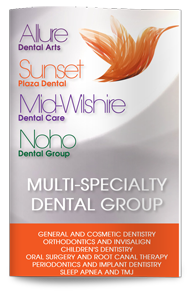What Causes Dental Cavities

Though they are more common in younger patients, adults can get dental cavities, as well, and in fact often do. It can be frustrating when your dentist informs you that you have a cavity, but less so if you understand how they occur. This knowledge can also help you to prevent cavities in the future.
Certain circumstances allow for dental cavities. Patients who eat a lot of sugary foods, and those who do not practice good dental care at home are both susceptible to tooth decay. The sugar from foods and drinks can team up with the harmful bacteria in your mouth to create acids. If the bacteria or acid is not brushed away, the acid attacks the enamel and dentin of the teeth, which rots away and leaves a hole, otherwise known as a cavity.
Decay can reach the inside of the tooth and the root canal, which can result in an abscess and infection. Our general dentists can restore the affected teeth and apply a filling or direct filling, and an endodontist can perform several procedures and treatments to eliminate plaque and tartar from the root canal. If the tooth has lost too much of its structure and will not be strong enough on its own, our expert may place a crown to fortify it.
Signs of cavity include:
• Sensitivity to hot and cold substances
• Pain when biting or chewing
• Light or dark brown spots
• A visible hole
There may also be no signs or symptoms, and the cavity only found during a routine exam by one of our dentists. Be sure to look out for any signs, and schedule an appointment if you have any concerns.
Back to Blog





